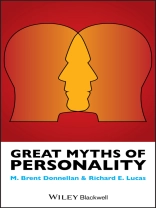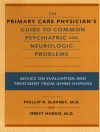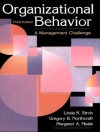Great Myths of Personality teaches critical thinking skills and key concepts of personality psychology through the discussion of popular myths and misconceptions.
* Provides a thorough look at contemporary myths and misconceptions, such as: Does birth order affect personality? Are personality tests an accurate way to measure personality? Do romantic partners need similar personalities for relationship success?
* Introduces concepts of personality psychology in an accessible and engaging manner
* Focuses on current debates and controversies in the field with references to the latest research and scientific literature
Inhoudsopgave
Introduction 1
1 Situational Factors Overwhelm Personality When Predicting Behavior 13
2 Personality Measures Do Not Predict Consequential Outcomes (Like Health, Wealth, and Divorce) Well Enough to Be Useful 25
3 There is a Single Gene for a Single Personality Trait 35
4 Evolutionary Perspectives Are Not Relevant for Personality 43
5 People Come in Discrete Personality Types 51
6 Personality is Too Complicated to Be Measured 59
7 Personality Measures Can Be Faked So They Are Not Valid 69
8 The Myers-Briggs Type Indicator is the Best Approach for Assessing Personality 77
9 Projective Tests Are the Best Approach for Measuring Personality 85
10 Unstructured Interviews are the Best Approach for Measuring Personality 93
11 Most Personality Quizzes in Magazines and on Websites Provide Accurate Information About Your Personality 101
12 Personality Traits Do Not Have Much Consistency Across the Life Span 111
13 Personality is Completely Stable (or Set Like Plaster) After Age 30 119
14 Traumatic Life Events Dramatically Reshape Personality 127
15 Adolescence is the Most Significant Period of Personality Development 135
16 Birth Order is an Important Influence on Personality 141
17 Parenting Practices Are the Major Source of Personality Differences 149
18 Happiness is Completely Determined by Situational Factors 157
19 Happiness is Unrelated to Major Life Events 167
20 Happiness Results Primarily From Person-Environment Fit 179
21 There is a 3-to-1 Positivity-to-Negativity Ratio for Flourishing 189
22 Personality Trait Similarity Matters for Romantic Relationships 195
23 Spouses Are Especially Similar in Terms of Personality Traits or Spouses Have Complementary Personality Traits 203
24 High Self-Esteem and Narcissism Are the Same Attribute 209
25 Perceptions of National Character Reflect ‘Real’ Group Differences 217
26 Personality is Radically Different From Culture to Culture 225
27 Men Are From Mars, Women Are From Venus (Men and Women Have Dramatically Different Personalities) 235
28 Clinicians Can’t Treat Personality Disorders 243
Index 257
Over de auteur
M. Brent Donnellan is Professor of Psychology at Michigan State University. He investigates research topics at the intersections of personality psychology, psychological assessment, and developmental psychology. He currently serves as the Senior Editor for the Personality section of Collabra: Psychology and as an Associate Editor for Advances in Methods and Practices in Psychological Science. His current research efforts focus on personality trait development, the assessment of well-being and self-esteem, and methodological tools and practices to improve psychological science.
Richard E. Lucas is an MSU Foundation Professor of Psychology at Michigan State University. His research focuses on the causes, consequences, and measurement of subjective well-being. Specifically, he studies the associations between personality and well-being, and he examines the extent to which people adapt to major life events and life circumstances. He is currently an associate editor for Perspectives on Psychological Science and Collabra: Psychology and incoming Editor-in-Chief for the Journal of Personality and Social Psychology. He is co-author of the book Well-Being for Public Policy (2009) and co-editor of Secondary Data Analysis (2010).












